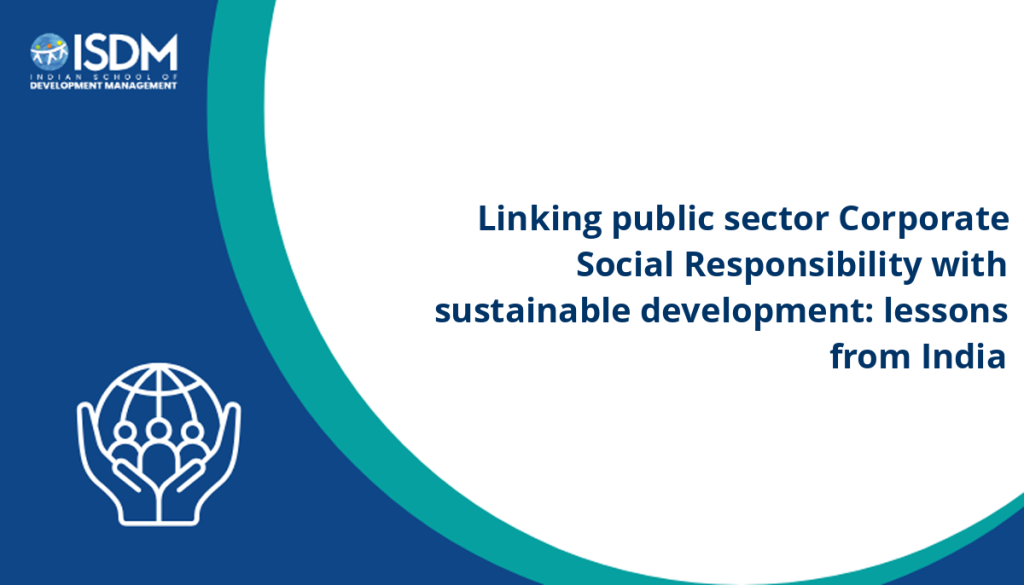Home > Development Management > Linking public sector Corporate Social Responsibility with sustainable development: lessons from India

Interested in the full story?
Access the complete case study to learn more
Subhasis Ray
No ratings yet
|
|
Thank you for Signing Up |

